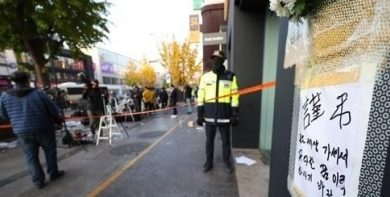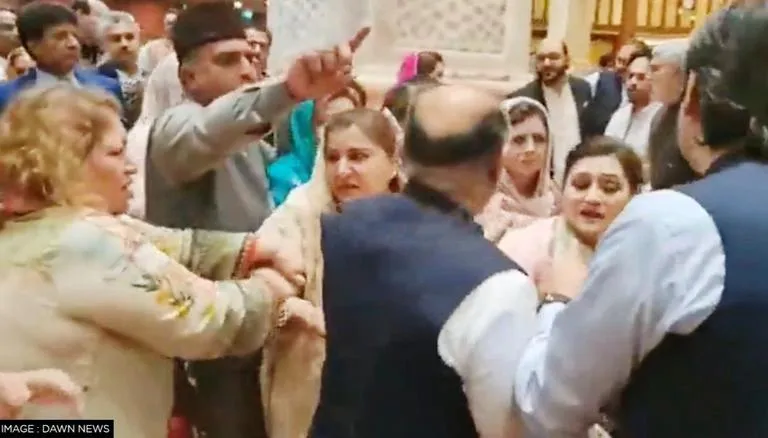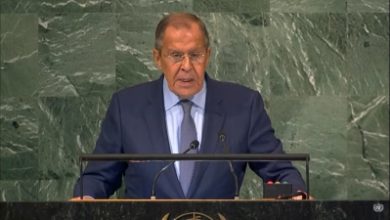In diplomatic win for Russia, UNSC adopts Syria relief resolution on its terms

United Nations, July 13 : In a diplomatic win for Russia, the United Nations Security Council has passed a resolution extending on Moscow’s terms the mandate to continue humanitarian aid to rebel-held areas in Syria for six months after the three Western permanent members waived their veto.
The resolution’s adoption on Tuesday will help provide humanitarian supplies for “nearly 4 million people in the northwest of Syria, 2.7 million of whom are IDPs (internally displaced persons), many of whom are women and children”, said India’s Charge d’Affaires R. Ravindra who voted for it.
Last week the US, the UK and France had vetoed a similar resolution proposed by Russia after Moscow had vetoed a Western-backed motion to extend the provision to send aid through the Bab al-Hawa border crossing from Turkey for a year.
The three Western permanent members abstained on Tuesday allowing its passage with the votes of the other 12 members.
India had voted on Friday for the 12-month extension but abstained on the Russian resolution for a six-month extension.
The Council mandate to use the crossing for humanitarian aid to the rebel areas expired on Sunday and without the renewal, the people there would have been left without their lifeline.
Russia used the threat of a humanitarian catastrophe to wear down the three Western permanent members to agree not to veto a resolution similar to theirs for a six-month extension that was repackaged by Ireland and Norway, which hold the Council portfolio for Syria, and presented on Tuesday.
US Permanent Representative Linda Thomas-Greenfield explained the turn-around: “The reason is simple – this was a mandate that was held hostage by the Russian Federation.”
Russia’s Deputy Permanent Representative Dmitry Polyansky said dismissively that it was time for the US and its allies “to get used to respecting the interests of other states”.
Norway and Ireland had proposed the 12-month extension resolution last week, but whittled it down to six months after hectic negotiations failed to move an adamant Moscow, which backs Syrian President Hafez al-Assad in the civil war-wracked country.
“It is no secret that this has been a difficult negotiation,” said Ireland’s Permanent Representative Geraldine Byrne Nason.
Last week’s standoff in the Council was grandstanding by both sides because the 12-month extension resolution provided for a two-stage extension with the second six months made subject to there being no objections.
Ravindra criticised the politicisation of humanitarian aid.
He said, “Humanitarian assistance cannot be a matter of political expediency (and) linking humanitarian and developmental assistance with the progress in the political process will only exacerbate the humanitarian sufferings and should be avoided.”
While the resolution provides for aid to the people in the areas under rebel control, he said that “we should not lose sight of the fact that more than 14.5 million people across Syria need humanitarian assistance in one form or the other, with essential food items and fuel in short supply”.
“We reiterate call for enhanced and effective humanitarian assistance to all Syrians throughout the country without discrimination, politicisation and preconditions,” he added.
France’s Permanent Representative Nicolas de Riviere restated the Western permanent members’ main objection to a six-month extension: It would expire in the middle of winter.
France would work to ensure that the mandate is extended in January when the needs would be great, he said.






